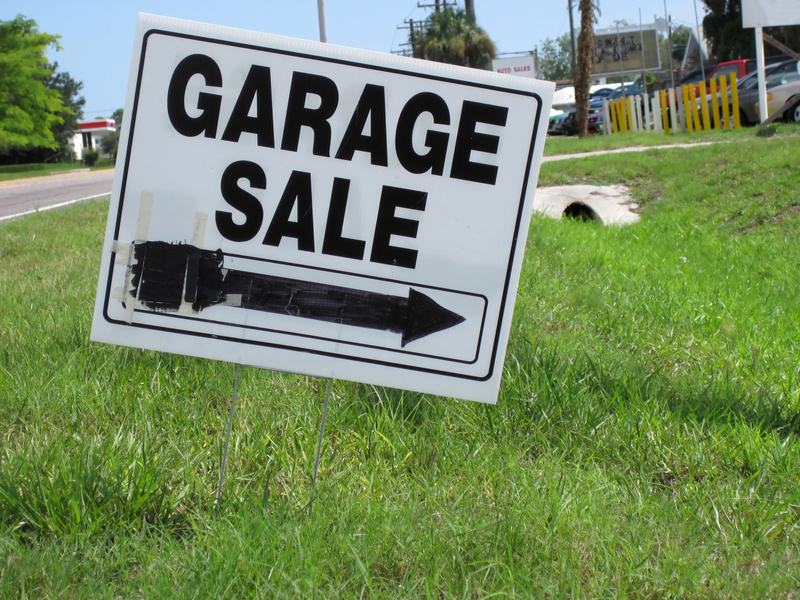Minimizing Environmental Impact with Unusable Garden Waste
Posted on 15/09/2025

Gardening is a popular hobby for many individuals, offering a sense of accomplishment and relaxation. However, with every garden comes the inevitable production of unusable waste materials. From fallen leaves to dead plants, these garden residues can quickly pile up and become an eyesore in your backyard. Moreover, improper disposal of these materials can have negative impacts on the environment. It is crucial for gardeners to understand the importance of minimizing their environmental impact through proper management of unusable garden waste.
In this article, we will explore some effective ways to reduce and reuse garden waste, as well as discuss the pros and cons of each method.
Reducing Garden Waste
The best way to minimize the environmental impact of unusable garden waste is by reducing its production in the first place. By implementing certain techniques and practices, you can significantly lessen the amount of waste generated in your garden.
1. Composting: Composting is a natural process that involves the decomposition of organic materials such as food scraps, leaves, grass clippings, and garden debris into nutrient-rich soil amendment. This not only reduces the volume of unusable waste but also produces a valuable resource for your garden. Composting also helps in reducing methane emissions from landfills, which are a major contributor to global warming.
2. Mulching: Mulching is another effective way to reduce garden waste by using grass clippings, shredded leaves or bark chips as a protective layer on top of the soil. This not only helps in retaining moisture in the soil but also adds organic matter back into it, enriching its quality.
3. Choose low-waste plants: When planning your garden, opt for low-waste plants that require minimal pruning and produce fewer leaves or flowers to clean up. This will save you time and effort in managing excess waste.
4. Use reusable containers: Instead of buying plastic pots every season, consider using biodegradable or reusable containers made from materials such as terracotta or wood. This will not only reduce the amount of waste generated but also save money in the long run.
Reusing Garden Waste
Though reducing garden waste is crucial, there will always be some amount that cannot be avoided. Hence, it is essential to find ways to reuse this waste rather than sending it to landfills.
1. Using leaves and grass clippings as mulch: As mentioned earlier, leaves and grass clippings make excellent mulch for your garden. Instead of throwing them away, collect and use them to cover bare patches of soil in your garden beds.
2. Making leaf mold: Leaf mold is a type of compost made from decomposed leaves. It has high water-holding capacity and can be used as an alternative to peat moss in potting mixes.
3. Creating a wildlife habitat: Fallen branches and logs can provide shelter for small animals and insects in your garden. Allow these natural elements to stay and create a mini-wildlife sanctuary in your yard.
4. Donating plant cuttings: If you have excess plants or cuttings, consider donating them to community gardens or local schools. This not only reduces waste but also promotes sustainable practices within your community.
Pros and Cons
There are several pros and cons associated with minimizing environmental impact through proper management of unusable garden waste.
Pros:
- Reduces methane emissions from landfills
- Produces nutrient-rich compost for your garden
- Saves money on buying fertilizers and soil amendments
- Promotes sustainable gardening practices
Cons:
- Requires effort and time in managing waste
- Composting may attract pests if not done correctly
- Not all types of garden waste can be reused or composted
Tips for Effective Waste Management
- Store dry leaves in paper bags or cardboard boxes for future use as mulch.
- Turn your compost regularly to promote faster decomposition.
- Avoid adding diseased or invasive plant species to your compost pile.
- Use a lawnmower with a mulching feature to chop up grass clippings and leave them on the lawn as natural fertilizer.
- Consult with your local waste management authority for guidelines on proper disposal of garden waste.
Takeaways
By implementing simple techniques and practices, gardeners can significantly reduce their environmental impact through proper management of unusable garden waste. Composting, mulching, choosing low-waste plants, and using reusable containers are effective ways to minimize waste production. Donating plant cuttings and creating wildlife habitats are also great ways to reuse garden waste. However, it is essential to consider the pros and cons before adopting any method and follow tips for effective waste management.
Conclusion
Gardening can have numerous benefits for individuals and the environment. By minimizing our environmental impact through proper management of unusable garden waste, we can continue to enjoy these benefits without harming the planet. So let's all do our part in reducing, reusing, and recycling garden waste to create a greener and more sustainable future for generations to come.





